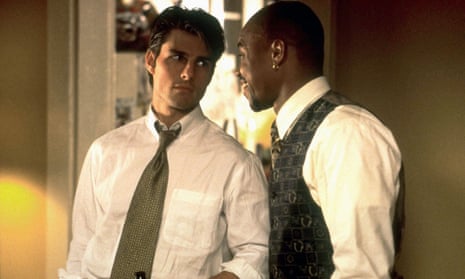Getting premises fitted out with no money in the bank was a real test of Wilf Horsfall’s negotiation skills. Horsfall, co-founder of Ubrew, persuaded National Rail to give his company three months’ rent free in a railway arch in Bermondsey. Then, along with his co-founder Matt Denham, he set about securing credit with various suppliers to tide the brewery over. The firm had raised £120,000 via a crowdfunding campaign but had not yet received the funds.

“We had to explain that the money was coming, show them the crowdfunding page […] it was blagging, basically,” he says. “Every time we needed screws or nails, we’d pick up the phone and sell memberships, courses, or company away days, to buy more materials. We would get equipment for the brewery sent to us and pay half in advance, and half when we got the money.”
Such situations are perhaps not uncommon for small business owners. Negotiation is part of everyday life for entrepreneurs – deals with suppliers, customers, stockists and employees, all have to be done to get a new business off the ground, and enable it to grow.
It is a skill that Natalie Reynolds, CEO of negotiation consultancy business AdvantageSpring and author of We Have a Deal, says does not come naturally to everyone. “[There isn’t] such a thing as a natural born negotiator,” she says. “[But] it is a skill that anyone can master.”
There are three broad categories of negotiation – rational, soft and hard, explains Dr Connson Locke, from the London School of Economics. Rational is very unemotional and uses logic; soft focuses on trying to make a connection with the other person; and hard is “what you see in the movies – the aggressive, assertive, pounding on the table”.
“We all have a personal tendency to one of those caricatures,” she says. A 2013 study (pdf) from the University of Oxford examining the negotiation behaviour of entrepreneurs, found that small business owners use persuasion and express emotion more than non-entrepreneurs. Perhaps because of this assertive behaviour, they closed fewer deals than non-entrepreneurs – but those that they did close were at a higher profit.
Being passionate about your cause is of course an asset for small business owners, but Reynolds says that negotiation is not about the fight, but about collaboration. “Many people think [negotiation] has to be confrontational. I refute that hugely. If you view negotiation through a win/lose mindset, you will often end up losing.”
For Horsfall, building trust with his suppliers was key to getting the deal: “It’s just about creating personal relationships with people, and working with smaller suppliers who can be a bit more flexible because they are looking for business. B&Q obviously don’t need or have the time to do case by case credit arrangements.”
Negotiating with larger companies, who will often refuse to negotiate on terms, can be difficult for small business owners. Josh Turner, owner of Stand4 Socks, found that larger department stores pushed for very favourable terms, and often he found he was powerless to argue: “We’re on sale or return for larger stores, whereas the smaller stores pay us up front […] we had to reduce our price quite a bit to give them their margin. With [a big online retailer], we did try to negotiate the price but they said if you want to be on here, we take 25% plus VAT. It was a shame, but we needed them.”

Reynolds does not buy the idea of being too big to negotiate. She argues that it is about finding more creative options. “A lot of the time, people in far stronger positions like to say no because they think they hold all the cards. Your trick is to have an immediate counter suggestion […] People who are the most effective at negotiation go in with multiple options. If it’s still non-negotiable, ask ‘well, what would make it negotiable?’”
Initially, the biggest challenge for Turner was finding someone to make his socks. He wanted a small number of his 10 colourful designs – the profits from which would go to a designated charity. But he found that the minimum orders for manufacturers were extremely high and he was asked to commit to at least 2,000 pairs per design. He wanted 300 pairs. It seemed increasingly unlikely that this would be possible, until he made a deal with the owner of one of the largest factories in the world.
“It wasn’t until the third trip [to Turkey] when they took me seriously,” he admits. “I wore them down. I needed them way more than they needed me but we built up a strong relationship and mutual respect for each other. Even now, we’ll be in a meeting and everyone else will say ‘this is a complicated order, it’s not for us’, and the owner will insist ‘Josh is a special customer, we’ll help him out with this’.”
Having a good relationship is key, particularly for entrepreneurs who are likely to make multiple deals with the same party. Locke argues that it is for this reason that high-stake negotiation should be done in person, which is becoming rarer in our technology-driven business world. “Negotiation is an inter-personal skill, and for any interpersonal skill you need that connection.”
There is a pervading stereotype that more women embrace the softer negotiation style than men. Experts also argue that women are less ambitious in what they ask for and are able to negotiate more effectively if they’re doing it on behalf of another person, rather than themselves. Reynolds says we need to challenge those assumptions and biases: “Some of the toughest negotiators I’ve met have been women, and some of the most timid and fearful negotiators have been men. Everyone is different.”
Annie Ridout, founder of The Early Hour, an online culture and lifestyle magazine, says that a course with the Prince’s Trust and surrounding herself with strong female role models, in life and at work, helped her feel more confident about negotiation. She mentions one friend in particular who “always asks for more money than employers are offering her”. She adds: “Being around empowered women and hearing about them negotiating effectively, and succeeding, made me feel like I could do it too.”

It helped Ridout when negotiating prices of sponsored posts. “One person came in at £50 and I got them up to £250 in the end,” she says, adding that she explained the value of the audience and the extra support she’d include to boost the package. Her move worked. “They were really receptive, surprisingly so. I think it would be really easy to stop low and to be scared about asking for more money. But actually, just being a bit bold and confident about what you have to offer [is key].”
For those that do feel anxious about the prospect of negotiation, Reynolds recommends the DEALS method as a guide to each stage.
- Discover: Do your research beforehand. Discover everything about the issue that is going to be negotiated, and consider the other party’s perspective as well. What do they want to achieve?
- Establish: Set some boundaries. Know how far you can you go on every issue. Write this down so that you won’t agree to something you’ll regret in the heat of the moment.
- Ask: When you are ready to make a proposal, do it in the right way. Give yourself some wriggle room, and plan your options in advance. Ask them questions about their position too.
- Lead: Rather than being overly aggressive, Reynolds says that leading is about being in control of yourself, having discipline, and being clear about what you ask for.
- Seal: Negotiation doesn’t end at the handshake. Get the deal in writing as soon as possible and plan for failure now. Add a clause about what the process will be if there are issues – it is harder to negotiate this when you’re in the middle of it.
Sign up to become a member of the Guardian Small Business Network here for more advice, insight and best practice direct to your inbox.

Comments (…)
Sign in or create your Guardian account to join the discussion